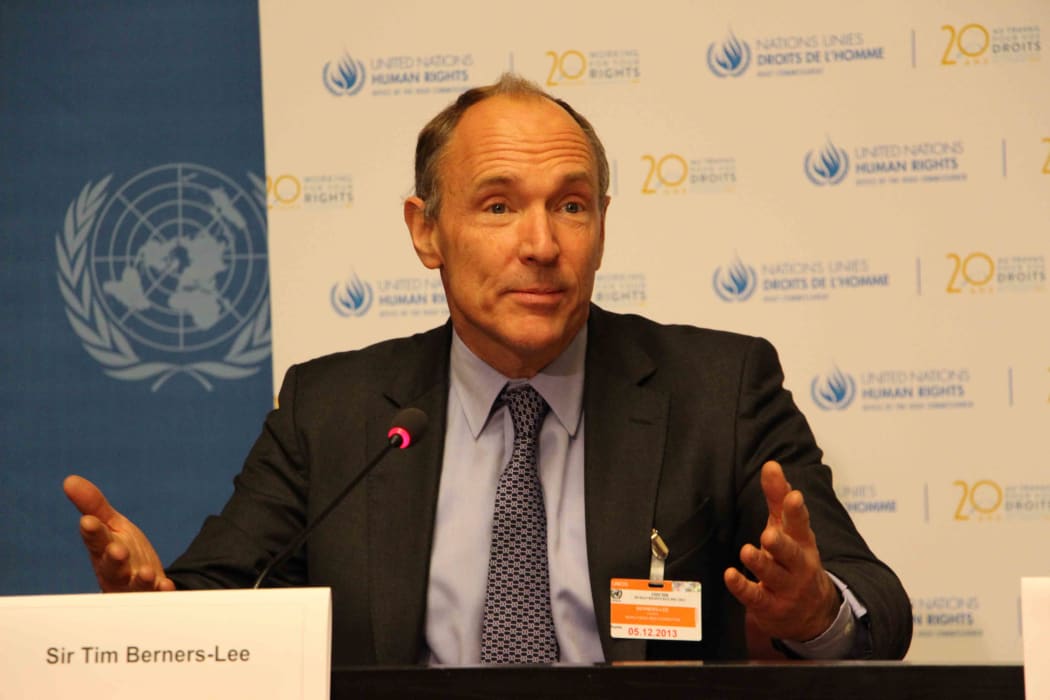The inventor of the world wide web, Sir Tim Berners-Lee, has unveiled a plan to tackle data abuse and fake news.

Sir Tim Berners-Lee: "Now it is up to all of us to build the web we want - for everyone" Photo: AFP
In an open letter published in the UK to mark the web's 28th anniversary, Sir Tim has set out a five-year strategy amid concerns he has about how the web is being used.
The British computer scientist said he was was increasingly worried about three new trends.
He wanted to combat the misuse of personal data, which creates a "chilling effect on free speech", and called for tighter regulation of "unethical" political ads.
It was also too easy for fake news to spread on the web.
Social media sites and search engines must be encouraged to continue efforts to combat the problem of fake news, Sir Tim said.
However, central bodies deciding what is true or not should be avoided, he added.
He said most people find their news and information through a "handful" of social media sites and search engines, which are paid whenever someone clicks a link.
"And they choose what to show us based on algorithms that learn from our personal data that they are constantly harvesting.
"The net result is that these sites show us content they think we'll click on, meaning that misinformation or fake news, which is surprising, shocking or designed to appeal to our biases, can spread like wildfire."
Users are often unable to tell outlets what data they would not like shared, Sir Tim said. Terms and conditions were "all or nothing".
Sir Tim said he wants to work with companies to put "a fair level of data control back in the hands of people".
He also expressed concerns that government surveillance was going too far and stopping the web from being used to explore topics such as sensitive health issues, sexuality or religion.
Sir Tim advocated transparency so users could understand how web pages appeared on their devices and suggested a set of common principles for sites to follow.
And he raised concerns about how online political advertising had become a "sophisticated" industry.
Sir Tim said there were indications some targeted advertising was being used in "unethical ways" to keep voters away from the polls or directing people to fake news sites.
He suggested companies could put subscription payments and small automated charges in place to make money without these types of ads.
However, despite highlighting issues on the world wide web which be believed need addressing, Sir Tim has admitted the solutions will not be simple.
Sir Tim said wanted the people who have helped develop the web with blogs, tweets, photos, videos and web pages to help come up with practical solutions to make a web "that gives equal power and opportunity to all".
"It has taken all of us to build the web we have, and now it is up to all of us to build the web we want - for everyone," he wrote.
- BBC / RNZ


